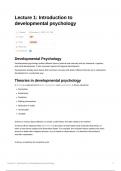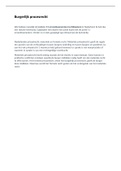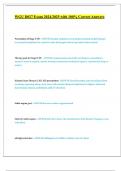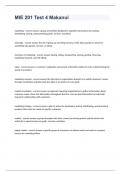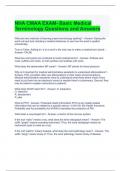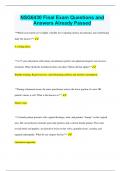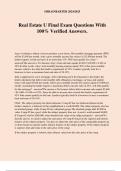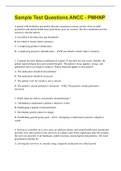College aantekeningen
Developmental Psychology Lecture Summary, First year (UvA)
This document contains all important lecture content, including notes I took during the lectures. This is an extensive summary that I used to study for the exam together with the book summary that you can buy as well. It got me an 8.2 on the final exam so it might be helpful to you as well :)
[Meer zien]
